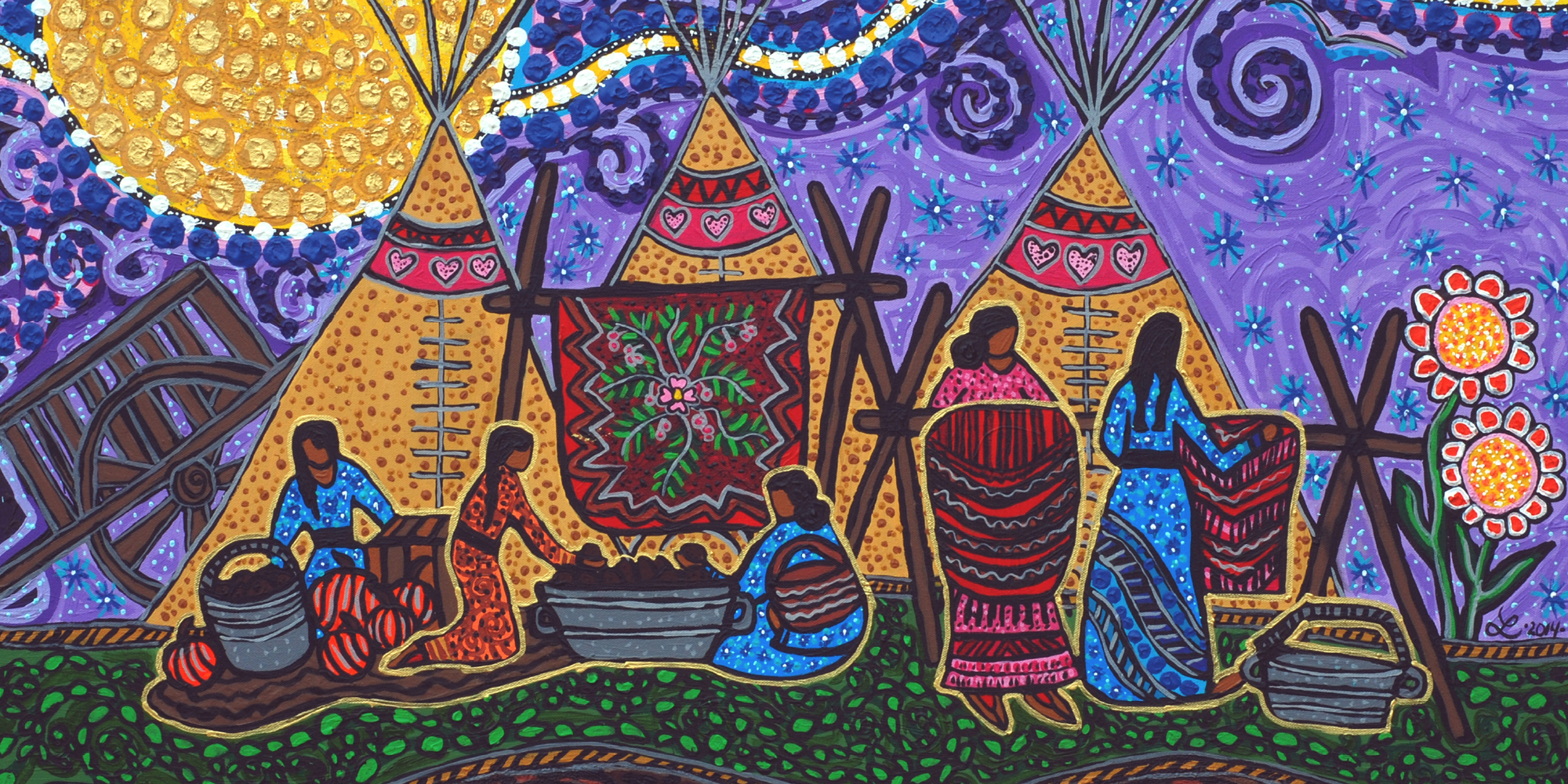

The Métis Commission for Children and Families of BC (MCCFBC) is the legislated designated representative for Métis children, youth and families involved in the child welfare system. The MCCFBC strives to ensure that Métis people receive culturally safe support services.
.jpg) The MCCFBC does not provide direct child welfare services. We work with Métis children, youth and families subject to a court order to ensure that there is dialogue in relation to Métis culture, the Métis community, and planning with the family. In addition, we work with children who are in the continuing custody of the MCFD Director to ensure that each and every Métis child has a cultural safety agreement in place to connect them with their family, culture and community.
The MCCFBC does not provide direct child welfare services. We work with Métis children, youth and families subject to a court order to ensure that there is dialogue in relation to Métis culture, the Métis community, and planning with the family. In addition, we work with children who are in the continuing custody of the MCFD Director to ensure that each and every Métis child has a cultural safety agreement in place to connect them with their family, culture and community.
Our Mission Statement
As the designated representative, we foster a Métis specific child welfare system that bridges relationships between communities, services and government to ensure cultural safety for Métis children, youth and families.
Our Vision Statement
Advancing transformative change for the well-being of Métis children, youth and families.
Our Values
Cultural Significance, Integrity, Respect, Trust, Cooperation, Hope
Métis Culture, Family, Children, Kinship Ties, Métis Community
The MCCFBC was incorporated as a non-profit society under the British Columbia Society Act on September 20, 1999. Under the leadership of the original six commissioners (Margaret Clement, Sharon Coflin, Keith Jager, Gary McDermott, Robert Simmonds, and Tammy Sloan), it was established as a non-political body to advise governments in regards to services for Métis children and families in British Columbia.
Today, the MCCFBC is identified within provincial legislation as being the designated representative for Métis children, youth, and families within the BC child welfare system. Through this legislation, the Ministry of Children and Family Development (MCFD) and Delegated Aboriginal Agencies (DAA) have a legal obligation to notify the MCCFBC when a Métis child is involved with the child welfare system and to send all court documents related to Métis children to MCCFBC for review and involvement.
Engaging with MCFD and DAAs in this process has provided an opportunity to supply the current child welfare system with culturally safe tools for working with Métis children and families.
Can the MCCFBC help me get my kids back?
The MCCFBC believes that a child is best raised within their family, kinship networks and community. At times, families struggle and need support from others. We can assist with the following:
- Help you understand what MCFD is worried about, as well as where you might find the support you need.
- Walk you through any questions you have about the child welfare system or court procedures in BC.
- Help make a plan to present to your social worker.
- Refer you to places in your community where support for Métis people is offered.
Can I, as a Métis parent or grandparent, get support from the MCCFBC?
Yes. Cultural Safety Workers can explain the child welfare process, make inquiry calls on your behalf, and at times attend court as a voice for the children and the Métis community.
When does the MCCFBC appear in court?
The MCCFBC reviews all court documents and follows all cases as they move through the court system. The MCCFBC may sometimes be able to appear in court in person or by way of telephone when:
- We identify areas where planning to return a child to the care of their parents or family has become stuck
- We identify situations in which a family and/or the Métis community's voice is not heard in relation to planning for the children
- Social workers request the Designate Representative to share the views of the Métis community and/or to present more options for the children
The MCCFBC is not able to go to court in every situation, but can monitor and make court submissions in writing where necessary.
I am a relative or an adoptive parent of a Métis child, can you help give me ideas for raising them in the Métis culture?
Yes, we have a wealth of research and Métis cultural material, including kits for different age ranges, that we are willing to share with you. There are also links on our website to online resources and Métis community services in BC.
Can the MCCFBC help our social worker understand why being acknowledged as Métis is so important to us?
Although it can be challenging to share a cultural feeling, we do our best. The MCCFBC regularly engages child welfare workers in conversations and planning that support the cultural identity of Métis children and youth. Our hope is for Métis children and youth to be raised in their families and with the Métis culture.
Can I receive services from the MCCFBC if I do not have a Métis card?
Yes, anyone self-identifying as a Métis person who is involved with the child welfare system in BC can connect with the MCCFBC. Also, if you are interested in learning about your Métis ancestry, we can refer you to several organizations that can help you.
If my child is being adopted, how can I make sure that they know they are Métis?
You can ask to be part of the adoption planning. The MCCFBC is part of the planning through the Provincial Adoptions Exception Committee and the Métis Family Services Adoption Committee, and is connected to permanency planning teams throughout BC. We ensure that there is a Métis cultural plan attached to each child’s records.
I am Métis, but I do not know how to get connected to my Métis community. Can the MCCFBC help?
The MCCFBC strives to keep an up-to-date list of Métis-specific organizations throughout the province. We also collect event information and post it to our website and social media as we find it. Many communities or regions of the province have a Métis Chartered Community that connects Métis people by way of gatherings, celebrations and events.
I am a social worker with a Métis child on my caseload and I would like to offer them and their caregiver ideas on a Métis-supported upbringing. Can I call the MCCFBC for support?
Yes, we are here to help. You are a major factor in returning and connecting Métis children to their culture and community, and we are here to support you. We have examples of best practices in serving Métis children from across the province and samples of care, safety and cultural plans that we can share with you.


